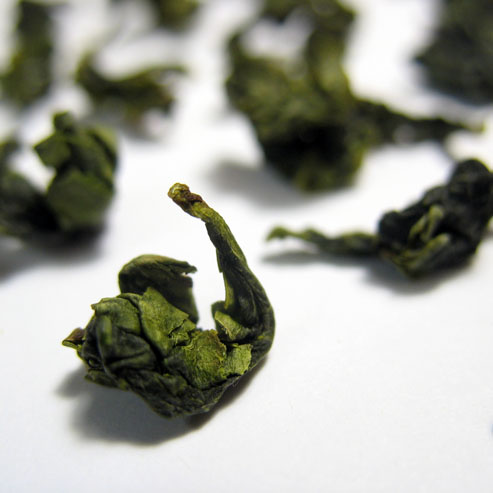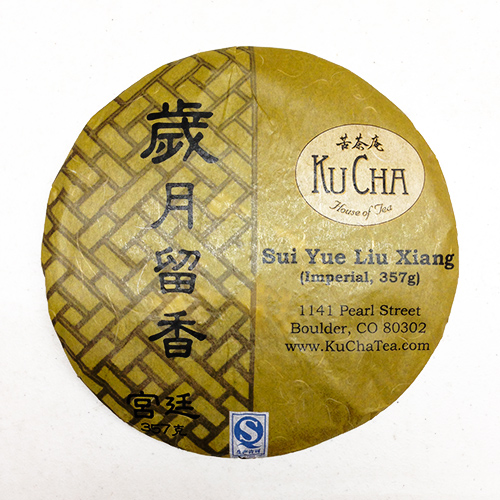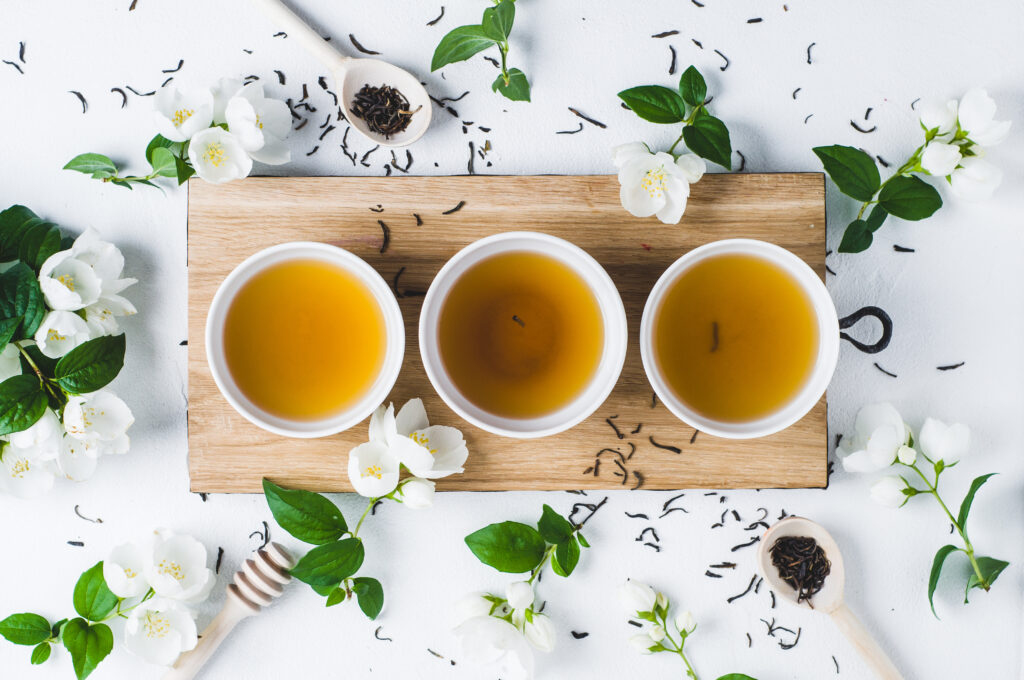Tea is Digestion’s Best Friend
Preparations for Thanksgiving begin for many of us this weekend, when we shop for ingredients, finalize menus, and in many cases begin cooking. We might bake a batch of cheddar crackers for pre-feast grazing, or get started with the gravy by roasting turkey necks and backs and making a rich stock.
We all know what happens once the kitchen work commences: we nibble. And as we draw closer to the big day, and are baking pies and spiced nuts and sides like green bean casserole, the nibbling becomes more like all-day dining. Then comes Thanksgiving itself, followed by days of creative leftovers gambits, followed by holiday parties, followed by the end-of-December holidays, including New Year’s Eve.
The holidays bring cheer – and upset stomachs
That’s a whole lot of eating. All along, the poor digestive track is hammering away in overdrive, toiling to dispense with the flood of fats, the surge of sodium, the stream of sugars and to keep the body in a healthy state of equilibrium.

We endorse lending our digestive systems a hand year-round, by drinking tea. But the practice gains urgency for the final six weeks of the year. Stoking digestive fires during the holidays not only happens behind the scenes, lifting some of the burden from the hard-working digestive tract. It also improves the overall human experience. As we glide from feast to party, from martini to tray of passed-plate fried-shrimp appetizers to buttery holiday cookies, the chugging digestive system can interfere with our stomachs, sleep, energy — even our moods.
It doesn’t have to be so taxing on body and mind. Incorporate digestion-friendly tea into the cavalcade of decadence, and witness more tranquil tummies, sound sleeps, boosted stamina and vitality and improved moods.
While many herbal teas help optimize digestion, traditional Camellia sinensis tea also serves to enhance digestion. This trio of teas — an oolong, puerh and decaf green — will benefit your body across the holiday season, and beyond.
Teas for Digestion: Tie Guan Yin

We love it when things that are good for you also taste wonderful. This is the case for tea in general — all of the teas we carry are healthy, and we think they all are yummy, too. But the confluence of taste and health becomes even more compelling with teas like Tie Guan Yin, which means Iron Goddess of Mercy in Chinese. This famous oolong, from China’s Fujian Province, undergoes a series of important steps that transform the tea leaves into an immensely captivating and popular tea.
Steps for making Tie Guan Yin include:
- Plucking
- Withering in the sun
- Cooling
- Tossing
- Withering, with oxidation
- Stopping oxidation
- Rolling
- Drying
When brewed, this digestion enhancer broadcasts a sweet and floral fragrance, along with a bright taste and smooth finish. We adore how Tie Guan Yin’s sweetness lingers in the mouth, and we return to the pot for repeated steeepings; with each one, the flavors and aromas evolve and blossom in different ways.
Teas for Digestion: Sui Yue Liu Xiang

People across China and the Chinese diaspora, and increasingly lots of other people around the world, savor puerh tea, the style crafted in China that incorporates fermentation into the tea-making process. People mostly champion puerh because of its complex flavor; with fermentation comes flavors that ripen and change over time. Many puerh fans age their puerh, which is normally sold in round cakes, for years. But it’s not just interesting taste that attracts people to puerh; the tea is extremely healthy, too.
And that includes its ability to boost digestion. Many people prize sipping puerh after eating a meal. Tea artisans use Imperial or Gong Ting grade puerh from LinCang County in China’s Yunnan Province to craft Sie Yue Liu Xiang, which means Fragrance of Age in Chinese. The tea brews strong, smooth and earthy, with notes of pipe tobacco and citrus. And like Tie Guan Yin, it can easily be infused repeatedly, gong-fu style. This puerh also ages quite well in Colorado’s arid climate.
Teas for Digestion: Decaf Jasmine Green

For some people, sipping tea after dinner is no problem; many teas are low in caffeine, and don’t interfere with their sleep. But many people are sensitive to caffeine. Drinking it in the evening means they’ll suffer from a poor sleep.
Caffeine sensitivity, however, does not banish tea from post-prandial pursuits. When the caffeine gets removed, the sleepless problem vanishes.
This is one reason we often drink our fantastic decaf jasmine green tea. It offers the same floral flavors as traditional jasmine green tea, but minus the caffeine. All of our decaffeinated teas rely on C02 for the removal of natural caffeine, rather than solvents like ethyl acetate or methylene chloride that are commonly used. Not only are these substances toxic, we feel they also detract from the flavor of tea.
This digestion-friendly and sleep-positive tea, rich with flavors and aromas of fresh jasmine blossoms, is so sweet and flavor-packed that you’ll never know it lacks caffeine.
FAQs:
1. What tea is best for bloating and gas?
Peppermint tea is one of the most effective for relieving bloating and gas due to its natural antispasmodic properties that help relax digestive tract muscles.
2. Can tea really help with digestion?
Yes, many herbal teas such as ginger, fennel, and chamomile are traditionally used to aid digestion by soothing the stomach, reducing inflammation, and promoting gut motility.
3. When is the best time to drink digestive teas?
Digestive teas are best consumed 20–30 minutes after meals. This timing helps support the body’s natural digestive process and can reduce symptoms like bloating or heartburn.
4. Is green tea good for digestion?
Green tea contains catechins that promote healthy digestion and may help regulate bowel movements, but it’s best consumed in moderation to avoid excess caffeine.
5. What is the difference between ginger and fennel tea for digestion?
Ginger tea is excellent for nausea and motility, while fennel tea helps reduce bloating, relax muscles, and improve flatulence. Both can be combined for enhanced effect.
6. Are there caffeine-free teas for digestion?
Yes, most herbal digestive teas like peppermint, chamomile, rooibos, and licorice root are naturally caffeine-free, making them safe to drink even in the evening.
7. Can I drink digestive teas daily?
Absolutely. Most digestive teas are gentle enough for daily use, but it’s wise to rotate blends and consult a healthcare provider if you have underlying digestive conditions.

